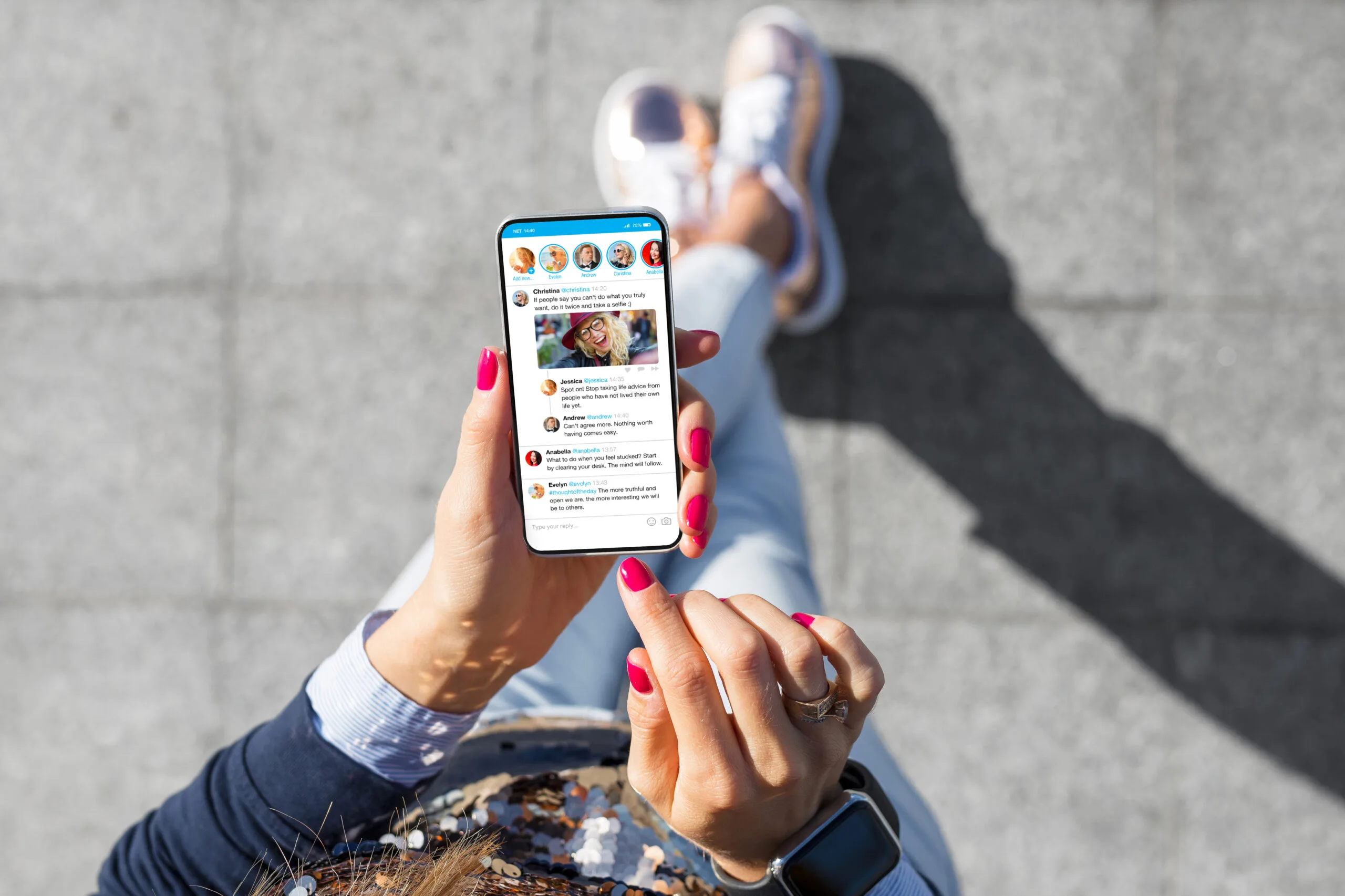Monica, Rachel, Joey and the Friends gang might not have always made the best choices in life, but they were always there for each other in tough times.
And it turns out strong friendships like those not only make us feel loved and supported, they’re also good for our health.
Experts say being socially isolated (which means having minimal contact with others) can have a negative impact on your mental and physical health, and can even increase your risk of heart disease, diabetes and dementia.
‘Decades of research have shown that meaningful social relationships are vital to our health,’ psychologist Carly Dober says. ‘Isolation can be as deadly as smoking a pack of cigarettes a week because loneliness and isolation actually manifest in the body. And they can lead to early death down the track.’
According to the Australian Institute of Health and Welfare, social contact between Aussies has been declining across all age groups for several decades. And even though we’re more connected digitally, researchers say social media can often make us feel more lonely.
Carly says that the tough economy is part of the reason. The current cost-of-living crisis means many of us are working longer hours, perhaps with multiple jobs, which means less time for social activities.
‘A lot of businesses and clubs have closed since lockdown and due to the recent economic landscape, so there are less options for people, as well,’ she adds. ‘And with communities being fractured, and having less social glue over the decades, all of that has come to this place where people are feeling isolated.’

How to avoid isolation
Carly’s number one tip to build connections – and maintain them – is to put yourself out there.
Don’t wait for your phone to buzz – instead, be the one who instigates meet-ups and opportunities for connection.
‘We can often be very judgemental and unkind speaking to ourselves, and maybe assume that we’re not worth hanging out with, or that people might be too busy for us. But I think we need to be comfortable with putting ourselves out there and understanding we might get a few rejections or knock-backs or rescheduling opportunities before people finally say “yes”.’
She also recommends contacting and organising catch-ups with friends or acquaintances who you might have fallen out of contact with due to busyness.
‘Use social media to your advantage – put a call out: Does anyone want to come to this film with me? Or Anyone fancy going to this play with me? Or maybe just invite someone around to your place for dinner. You might be surprised at who also feels lonely and will respond.’
Read more: 14 ways to improve your morning routine

How to build connections with others
It’s also extremely important to create new connections.
Carly suggests joining community activities and groups, such as pottery classes, choirs, running groups, sports clubs, or volunteering with local organisations.
‘Try new things and fill up your calendar because over time, these little connections might turn into friendships,’ she says. ‘We know it can take hundreds of hours of little interactions before we can actually make a friend. So, if it takes that much time, we’re simply going to need to put ourselves out there quite a lot.’
Your overall health will thank you for it.
Overcoming barriers to socialising
- If you’re struggling to maintain your social connections due to busyness, try combining an existing activity with a chance to be social, e.g. exercising with a friend or carpooling to work with a colleague.
- If low energy is getting in the way, make your health a priority. Eating better, exercising more, staying hydrated and cutting back on alcohol may boost your energy levels. If you’re still struggling with energy after that, see your GP.
- If technology is sucking up too much of your time, put limits on screen time using the settings in your phone or an app such as Forest, or cancel some of your television streaming services.

